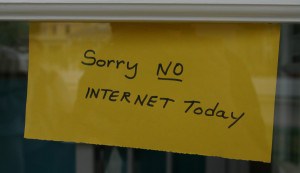 TDS Telecom, the Madison, Wisc. independent telephone company serving about 1 million landline customers in rural and suburban communities in 30 states, is losing 5.5 percent of those customers every year, as consumers increasingly drop their landline telephone service.
TDS Telecom, the Madison, Wisc. independent telephone company serving about 1 million landline customers in rural and suburban communities in 30 states, is losing 5.5 percent of those customers every year, as consumers increasingly drop their landline telephone service.
In second quarter financial results reported to investors this week, TDS noted it is increasingly dependent on selling DSL broadband and managed data services to stabilize long term revenues and minimize line losses. Like many independent phone companies, TDS’ largely rural service areas offer the opportunity of delivering broadband service to areas unserved by cable broadband, and unlikely to find robust cell phone or wireless data coverage.
Vicki Villacrez, TDS’ chief financial officer, reports the phone company now has a 60 percent penetration rate for residential landline customers taking DSL service.
“High speed data subscribers grew 6% year-on-year.” Villacrez said. “We continue to attract healthy levels of new customers and they are taking higher speed. Over 80% of our data subscribers are taking speeds of three megabits or greater and 16% are taking greater than 10 megabit speeds.”
Because TDS customers are migrating to faster speeds, where available, the company’s average revenue per subscriber has remained stable at $37 per month. That comes from a combination of the higher prices some customers pay for better service minus line losses, customer defections and retention offers delivering discounts to those threatening to switch providers.
TDS is also adopting similar strategies other phone companies are trying to hang onto customers: marketing their own triple play package of voice, broadband, and television service. Like most smaller phone companies, TDS delivers voice and data over their existing copper wire network and relies on a resale arrangement with DISH Network to provide satellite television.
About 26 percent of TDS customers are enrolled in the company’s triple play package, up 2,700 customers in the quarter.
But the company’s cost control measures also signal TDS’ unwillingness to invest noticeably in expanding their DSL footprint to additional customers, or dramatically improve their existing network. The company admits it plans to limit investment in new residential customers, and consolidated cash expenses were down 2.1% for the period, reflecting reduced spending.
Where is TDS willing to invest? In data center assets and future acquisition opportunities. TDS intends to broaden its presence in managed hosting and will continue to explore mergers and acquisition opportunities with other small, independent phone companies.


 Subscribe
Subscribe



